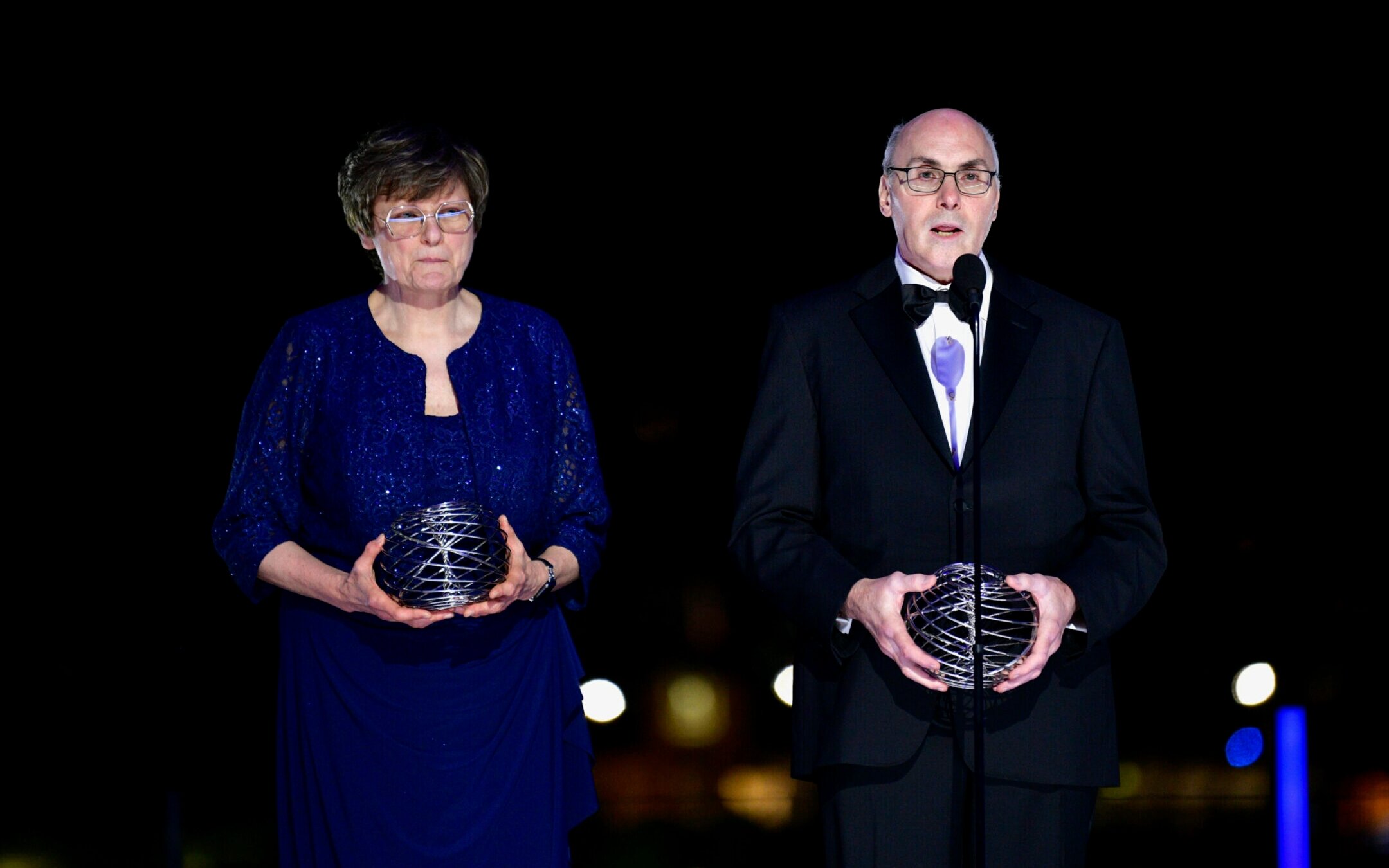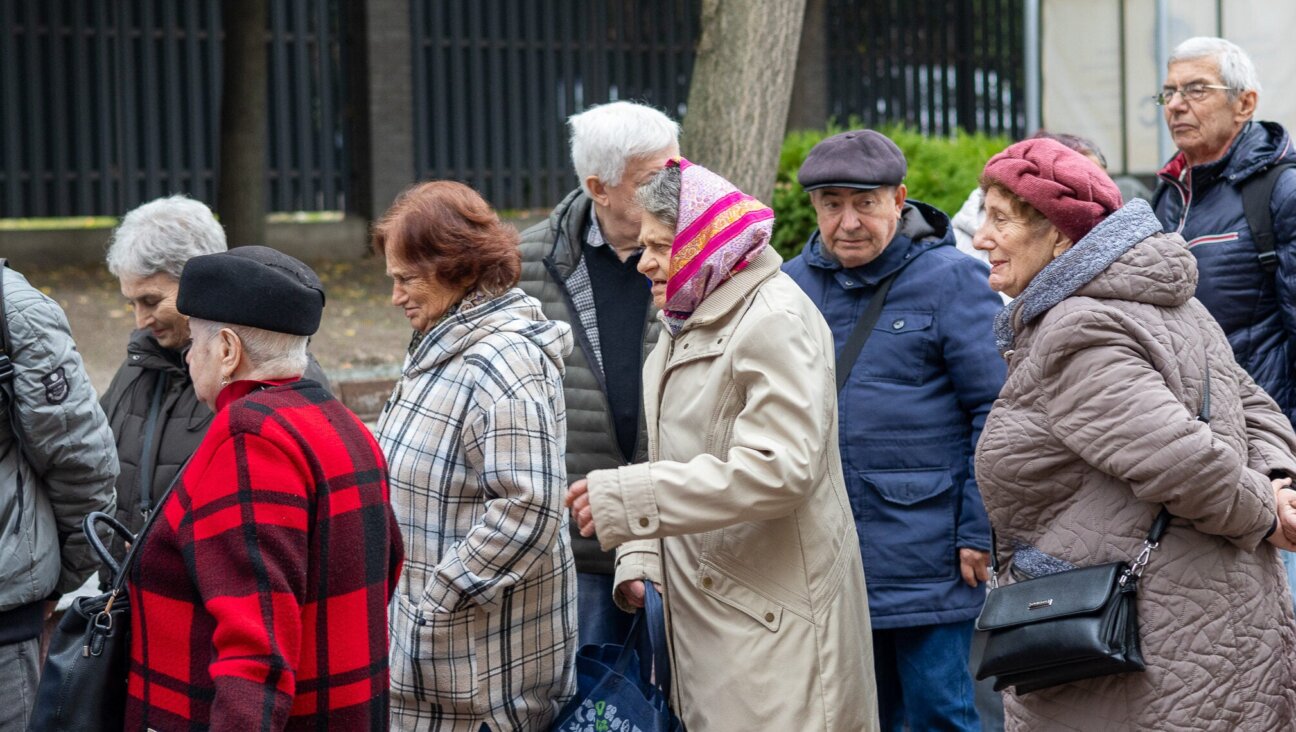Drew Weissman, Jewish immunologist, wins Nobel Prize for his work on Covid vaccines
Weissman shared the prize with Katalin Kariko, his Hungarian-born research partner at the University of Pennsylvania.

Katalin Kariko and Drew Weissman speak onstage at the Ninth Breakthrough Prize Ceremony at Academy Museum of Motion Pictures in Los Angeles, April 15, 2023. (Araya Doheny/Getty Images for Breakthrough Prize)
(JTA) — Drew Weissman, a Jewish scientist who identified the technology that made possible the mRNA vaccines against COVID-19, has won the 2023 Nobel Prize in medicine. Weissman shared the prize with Katalin Kariko, his Hungarian-born research partner at the University of Pennsylvania.
Kariko and Weissman’s story of collaboration became famous in 2020 when the technology they had started experimenting with more than two decades earlier allowed the swift creation effective vaccines against the crippling pandemic.
The pair first encountered each other while photocopying research papers in 1998 and realized they were working on related topics. Kariko, who had been a low-level researcher for years, was trying to prove that messenger RNA, the genetic material that tells cells what to do, could be programmed. Weissman, a physician who previously worked under Dr. Anthony Fauci, later the U.S. COVID czar, at the National Institutes of Health, was working on a vaccine against HIV.
They teamed up and, in 2005, published a paper showing that mRNA could in fact be altered to instruct cells to take certain actions. But their breakthrough was widely overlooked for decades until it became clear that it could be used to take action against COVID-19, which was killing hundreds of thousands of people and crippling the global economy. Their technology fueled both the Pfizer and Moderna vaccines, which arrived with unusual speech and effectiveness in late 2020 and together have been administered millions of times.
“Through their groundbreaking findings, which have fundamentally changed our understanding of how mRNA interacts with our immune system, the laureates contributed to the unprecedented rate of vaccine development during one of the greatest threats to human health in modern times,” the Nobel Prize committee said in announcing the award.
Weissman is the son of a Jewish father and non-Jewish mother who grew up celebrating Jewish holidays at home, he told the Philadelphia Jewish Exponent in 2021. Together with his wife Mary Ellen, who grew up in a more observant Jewish home, he sent his children to Hebrew school at Temple Beth Hillel/Beth El, a Conservative synagogue in suburban Philadelphia. Mary Ellen Weissman is heavily involved in Momentum, which seeks to engage Jewish women with Israel, and together with her husband has spoken to and donated to the organization.
Drew Weissman told the Exponent that his personal religious outlook was not specifically Jewish. ““I’m more of a Daoist, in that point of view that I think that Earth, nature is the supreme — the main component of life,” he said. “And that’s what needs to be celebrated.”
About a quarter of Nobel laureates in medicine over time have had one or more Jewish parents, according to Jinfo.org, a website that meticulously documents the Jewish lineage of prize winners across all fields. The site, which was updated swiftly to include Weissman, says that nearly 40% of U.S. Nobel laureates in medicine have been Jewish.
This article originally appeared on JTA.org.















